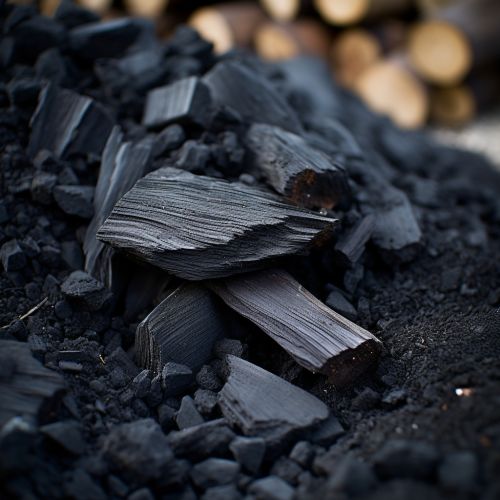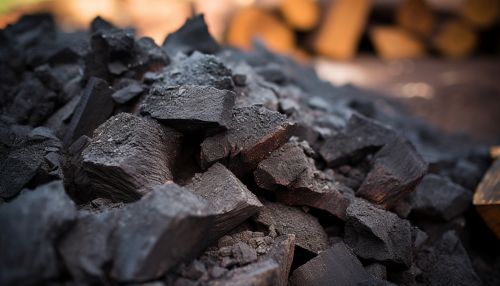Biochar
Introduction
Biochar is a type of charcoal that is produced by pyrolysis of biomass. It is a stable, carbon-rich substance that is used in soil amendment and carbon sequestration. The process of creating biochar is considered to be a form of carbon dioxide removal, which is a method of carbon capture and storage.


History
The concept of using charred organic material in soil amendment is not new. The use of biochar dates back to pre-Columbian Amazonians who used it to create black earths, which are highly fertile soils. These soils have been found to contain high levels of carbon, which is attributed to the addition of biochar.
Production
Biochar is produced by the process of pyrolysis, which involves the thermal decomposition of organic material in the absence of oxygen. This process results in the production of three main components: biochar, bio-oil, and syngas. The ratio of these components can be manipulated by adjusting the temperature and residence time of the pyrolysis process.
Properties
Biochar is characterized by its high carbon content and porous structure. The porosity of biochar makes it an excellent medium for the retention of water and nutrients in the soil. It also has a high surface area, which provides habitat for beneficial soil microorganisms.
Applications
The primary application of biochar is in soil amendment. When added to soil, biochar can improve soil fertility, increase crop yields, and reduce the need for chemical fertilizers. It can also enhance soil water retention, which can be beneficial in areas prone to drought.
In addition to its use in agriculture, biochar is also used in environmental remediation. It can be used to remediate contaminated soils by adsorbing pollutants such as heavy metals and organic compounds.
Biochar is also used in carbon sequestration. By converting biomass into biochar, carbon that would otherwise be released into the atmosphere as carbon dioxide is instead stored in a stable form that can persist in the soil for hundreds to thousands of years.
Environmental Impact
The production and use of biochar can have significant environmental benefits. The process of creating biochar sequesters carbon, which can help to mitigate climate change. Additionally, the use of biochar in soil amendment can improve soil health and productivity, which can contribute to sustainable agriculture.
However, the production of biochar can also have negative environmental impacts. The pyrolysis process can produce pollutants such as particulate matter and volatile organic compounds. Additionally, the sourcing of biomass for biochar production can have impacts on land use and biodiversity.
Future Research
There is ongoing research into the potential applications and impacts of biochar. This includes research into the optimal conditions for biochar production, the effects of biochar on soil health and crop yields, and the potential for biochar to be used in carbon capture and storage.
